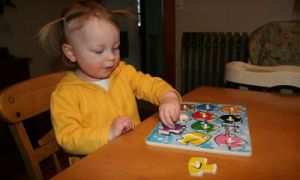

Our early childhood sector is facing a troubling paradox. On one hand, thousands of students are enrolling in Certificate III programs, eager to join the workforce. On the other hand, services are reporting that these trainees arrive on placement underprepared, leaving educators overwhelmed and children underserved. This mismatch between training and practice is not just frustrating—it’s unsustainable.
Placements are designed to be safe, structured opportunities for students to learn, observe, and gradually build confidence in their professional practice. They are not employment contracts, nor should they be used to fill staffing gaps. When boundaries blur, students can feel pressured, undervalued, and even exploited. Understanding the difference between learning and labour is essential for both centres and students.
Macquarie University’s Bachelor of Education (Early Childhood)—StepAhead Program is designed for diploma-qualified educators with at least two years of post-diploma work experience. It provides a pathway to upgrade existing qualifications into a full bachelor’s degree, recognising prior learning and professional practice.
Under ACECQA’s National Quality Framework, educators are deemed “qualified” if they hold a Certificate III, Diploma, or approved university degree. But qualification does not equal competence. The current system allows individuals with unrelated undergraduate degrees to complete a one-year postgraduate course and enter classrooms, often with minimal practical experience or emotional readiness. The result? A workforce flooded with technically qualified but emotionally disconnected practitioners some of whom openly admit they “don’t like kids” and entered the profession for visa access or job security.
The Diploma of Early Childhood Education and Care gives you an opportunity to explore more career options. From creative resource design to inclusion support, leadership, or advocacy, it offers a rich landscape of opportunities beyond the traditional role of working as an educator in an early learning setting. The following article provides examples of different career pathways for your Diploma qualification.
The Australian Skills Quality Authority, in collaboration with HumanAbility and sector partners, has released updated guidance to strengthen how early childhood education and care students are assessed during workplace placements. This article unpacks the key elements of the guidance, highlights unacceptable practices, and offers best-practice recommendations for registered training organisations and ECEC services.
In New South Wales, a disturbing trend is emerging: early childhood education students are paying thousands of dollars for contract cheating services—outsourcing assignments to third parties, often via encrypted platforms like WhatsApp. Some are reportedly using these fraudulent qualifications to fast-track visa approvals and bypass the very training meant to prepare them to support, nurture, and educate our youngest citizens.
When a qualification is cancelled by the Australian Skills Quality Authority (ASQA), it sets off a chain of consequences for educators, employers, and the broader vocational education sector. Here's a breakdown of what happens. The following article provides information on What Triggers Cancellation?, Students Working With Cancelled Qualification. Notification Process, Consequences for Students, FAQs for Cancelled VET Qualifications and more.
A: The short answer: Yes, in most cases. While ACECQA requires practicums as part of qualifications, the rule that some hours must be completed outside the current workplace is usually enforced by training providers (TAFEs, RTOs, universities). This ensures diverse experiences, exposure to different service types, and quality assurance across the sector.
Practicums are a vital part of ECEC qualifications in Australia. They ensure that students gain supervised, hands‑on experience in real settings, bridging theory with practice.
Here are some effective study planning techniques and tools to support students in staying organized and productive. This article provides information on Study Planning Techniques, Study Planning Tools, How To Manage Multiple Modules In A Cluster, Week By Week Study Plan, Daily Study Schedule Example, Weekly Study Breakdown Example, Study Tips While At Work and more.
 Toddlers have a greater understanding of the world around them by this stage. Their cognitive development (also known as intellectual development and thinking skills) continues… Read More
Toddlers have a greater understanding of the world around them by this stage. Their cognitive development (also known as intellectual development and thinking skills) continues… Read More
 Infants begin to develop trust when parents begin to fulfil their needs. Such as changing an infant's nappy when needed, feeding on request and holding… Read More
Infants begin to develop trust when parents begin to fulfil their needs. Such as changing an infant's nappy when needed, feeding on request and holding… Read More
 Beginning at birth the construction of thought processes, such as memory, problem solving, exploration of objects etc, is an important part of an infant’s cognitive… Read More
Beginning at birth the construction of thought processes, such as memory, problem solving, exploration of objects etc, is an important part of an infant’s cognitive… Read More
 Toddlers want to do more on their own and do not like it when you begin to establish limits on their behaviour. Tantrums can become… Read More
Toddlers want to do more on their own and do not like it when you begin to establish limits on their behaviour. Tantrums can become… Read More
 Your preschooler is now able to focus their attention more accurately and is less influenced by distractions. The intensity of questions increase as your child… Read More
Your preschooler is now able to focus their attention more accurately and is less influenced by distractions. The intensity of questions increase as your child… Read More
 John Dewey is often seen as the proponent of learning by doing – rather than learning by passively receiving. He believed that each child was active,… Read More
John Dewey is often seen as the proponent of learning by doing – rather than learning by passively receiving. He believed that each child was active,… Read More
 Toddler advance and gains new skills in Gross Motor Development milestones achieved throughout earlier years. Co-ordination and challenges that could not be performed before such… Read More
Toddler advance and gains new skills in Gross Motor Development milestones achieved throughout earlier years. Co-ordination and challenges that could not be performed before such… Read More
 Erik Erikson developed a psychosocial theory to understand how we each develop our identities through eight stages of psychosocial development from infancy to adulthood. The… Read More
Erik Erikson developed a psychosocial theory to understand how we each develop our identities through eight stages of psychosocial development from infancy to adulthood. The… Read More
 At this point preschoolers begin to interact effectively with others. Play becomes more innovative and organized and “boyfriend” or “girlfriend” begins to emerge. Preschoolers have… Read More
At this point preschoolers begin to interact effectively with others. Play becomes more innovative and organized and “boyfriend” or “girlfriend” begins to emerge. Preschoolers have… Read More
 From now, babies begin to identify and respond to their own feelings, understanding other's feelings & needs and interact positively with others. A baby's social and… Read More
From now, babies begin to identify and respond to their own feelings, understanding other's feelings & needs and interact positively with others. A baby's social and… Read More

Attachment theory is a key concept in developmental psychology that examines the importance of early...
See more...
Caring for babies in their gross motor development stage involves encouraging activities that promote strength...
See more...
Toddlers have a greater understanding of the world around them by this stage. Their cognitive...
See more...© 2009-2025 Aussie Childcare Network Pty Ltd. All Rights Reserved.

